The avoidable stresses and strains in ties helped in one way.
It showed for the entire region how a matured India handled diplomatic relations, especially with a smaller and suspicious neighbour, with practised dignity and patience, unruffled by provocations in word, deed and action, observes N Sathiya Moorthy.
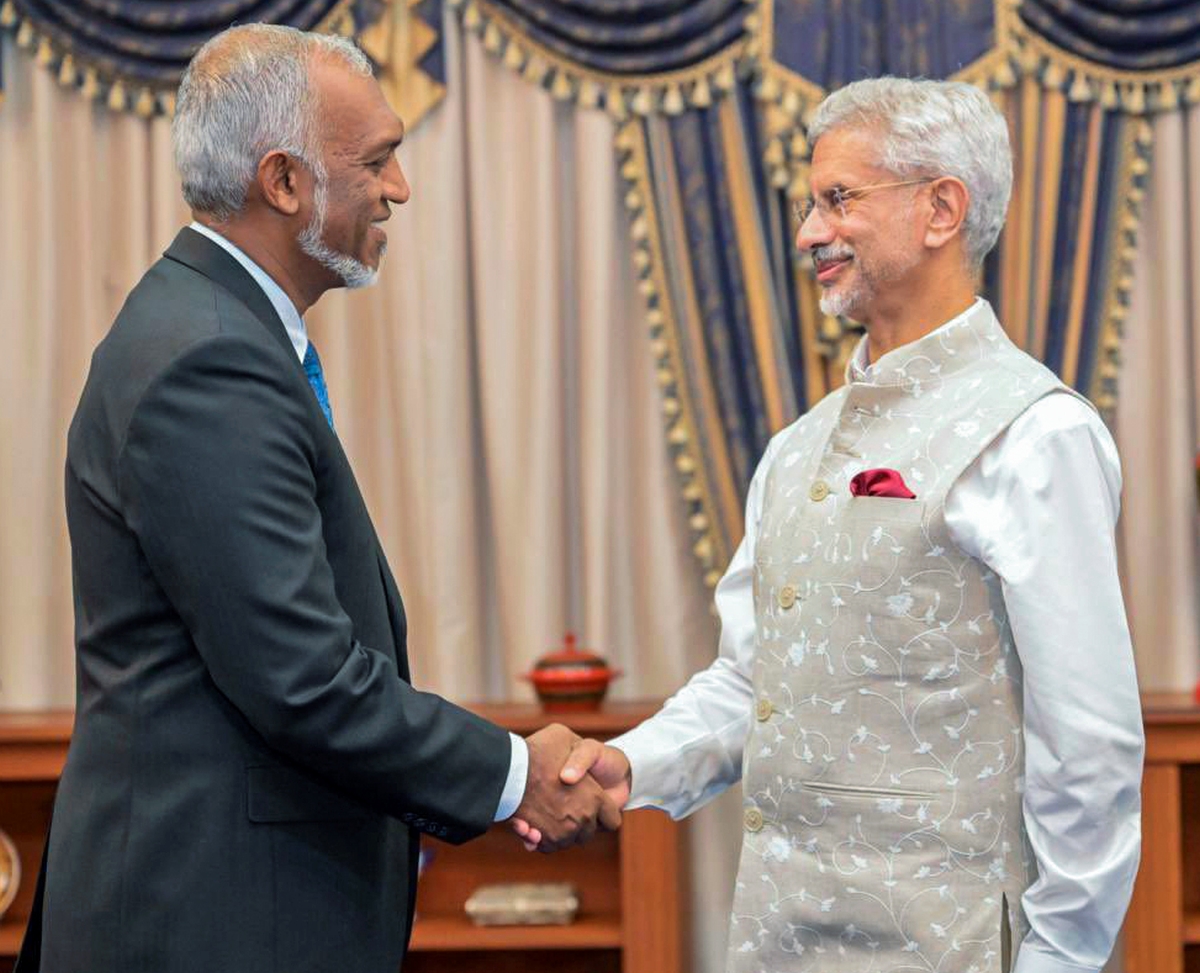
In a delayed yet decisive turn, two of three junior ministers under suspension for eight months after they had posted defamatory remarks against India and Prime Minister Narendra Modi in January have now resigned from the government of Maldivian President Mohammed Muizzu.
The two ministers, Mariyam Shiuna and Malsha Shareef, were under 'paid suspension' along with Mahzoom Majid, who has not resigned -- at least not yet.
Their posts triggered an instant 'Boycott Maldives' call on Indian social media, leading to a fall in Indian tourist arrivals in the middle of the annual season, which also failed to pick up in the summer, when school vacations trigger another wave from across the Indian Ocean.
The Maldivian tourism ministry and tourist operators had launched a road show last month in Delhi, Mumbai and Bengaluru to try and improve tourist inflow.
Though seemingly unconnected, the resignations come weeks after External Affairs Minister S Jaishankar's Maldives visit.
Subsequently, he was quoted telling a book release function in Delhi that Maldives as a neighbour recognises 'India is a steady ally'.
This was so despite the ups and downs in bilateral relations. Coming as it does after his recent visit to Maldives, it could well be indicative of a thaw in bilateral strains, re-injected after incumbent Mohamed Muizzu became president last November.
'Where Maldives is concerned, again, we've had ups and downs... ups and downs not just in the nature of the regime. There've been ups and downs in our own approach to Maldives,' Jaishankar said, as if acknowledging possible past mistakes on the Indian side.
He was not talking about the contemporary scenario. Instead, he was referring to the active Indian role in thwarting the coup bid in 1988 but the 'impassive' approach during the government change in 2012. There was a 'certain lack of consistency,' he said.
In the same vein, the minister noted that there will always be ups and downs in the relationship between neighbouring countries, depending on the time and context and other factors.
Maintaining consistent healthy relations with its neighbours is a challenging task for every country, the minister added.
'In every country of the world, neighbours are always a conundrum because neighbouring relations are the most difficult and can never solved,' the veteran diplomat, who was India's foreign secretary earlier, said.
'Tell me which country is there that doesn't have challenges with neighbours. It is the very nature of being a neighbour,' Jaishankar said, calling out critics of India's neighbourhood first policy.
'I would say that a relationship in which we are very deeply invested in there is today a recognition in Maldives, certainly I saw that in my recent visit, that this relationship is a steady force as they get into choppy waters where their own prospects are concerned, especially in terms of the economic challenges,' Jaishankar said.
As he pointed out in the Maldivian context, 'It is important for both the countries to make sure that these ups and downs do not become a reason for concern, for the two countries' security and national interest,' he said adding that in this case, President Muizzu also recognised that 'there is no getting away from India'.
According to him, 'inter-dependence is in the best interest of both the countries, and we must work to promote it.'
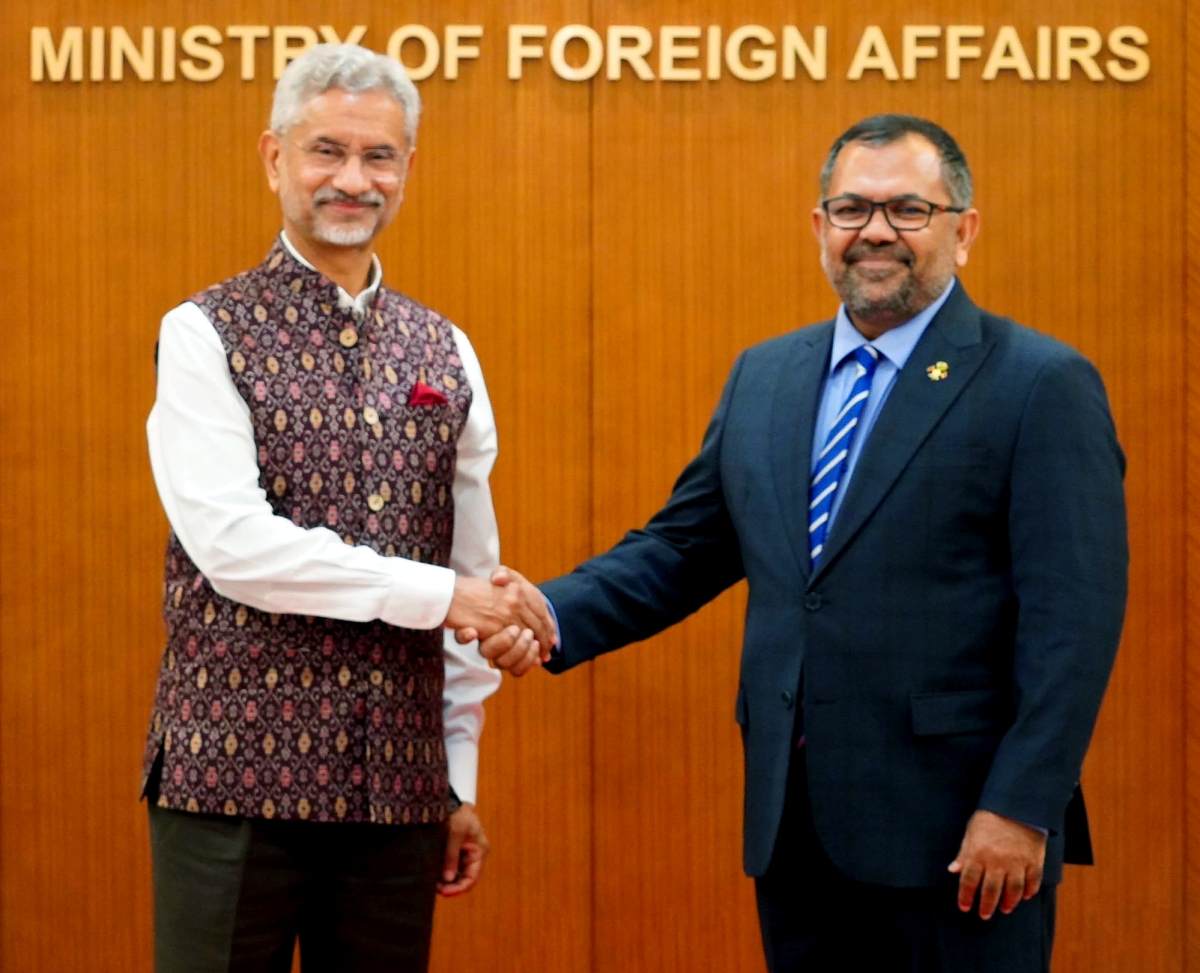
Inter-dependence is what got thrashed out, even if layer by layer, at Jaishankar's meeting with President Muizzu and his counterpart Moosa Zameer during his Maldives visit last month.
Going by what he has since said about the inevitabilities in neighbourhood relations, the cliched diplomatic phrase, 'cautious optimism' or 'optimism with caution' could aptly describe the current phase of bilateral relations with Maldives. This contrasts with early strains injected into the ties by Muizzu, as much personally as government policy.
The fact that India considered a 'return visit' by a high dignitary so early, after Muizzu, preceded by Foreign Minister Zameer, had made it to New Delhi in quick succession is indicative of the new hope.
Muizzu was in Delhi for Prime Minister Narendra Modi's third successive swearing-in in June, when he also held detailed discussions with Jaishankar.
Unlike in the previous months, Muizzu passed positive remarks about India and its leader. Yet, the taste of the pudding is in the eating, and India would possibly be looking at follow-ups on the extensive discussions during Jaishankar's visit.
In Male, apart from paying a courtesy call on Muizzu and having extensive talks with counterpart Zameer, Jaishankar significantly met Finance Minister Mohamed Shafeeq and Defence Minister Ghassan Maumoon, son of Maumoon Abdul Gayoom, president for 30 years since 1978.
The reasons are not far to seek. Maldives is facing a huge debt-cum-fiscal crisis, as indicated by the World Bank and the IMF as early as end-2022.
The IMF repeated the debt-warning earlier this year, after Muizzu had settled down in office.
As South Asia's responsible regional power, New Delhi's concerns over national and regional security, and contributions both in terms of economic and traditional needs, are real and always forthcoming.>/p>
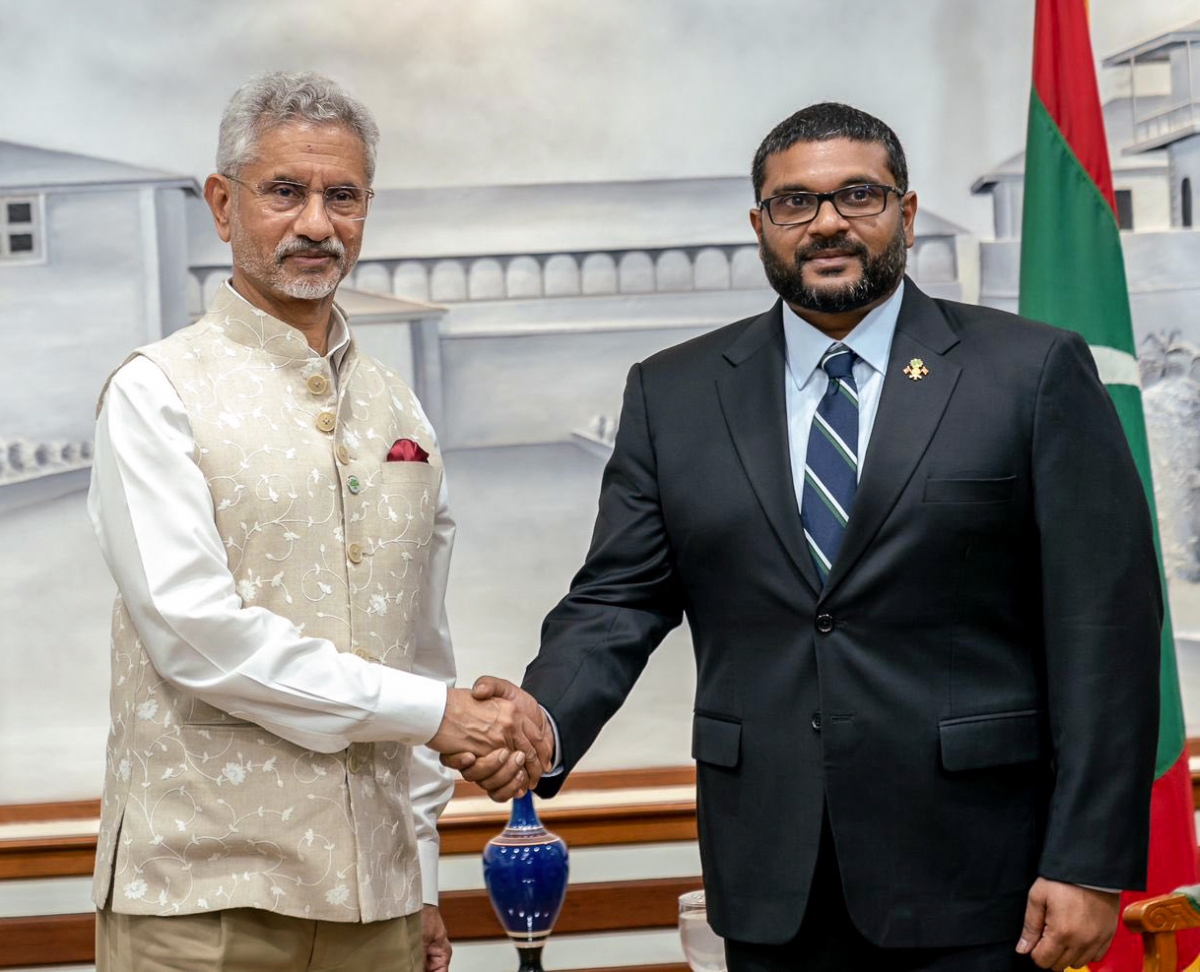
It requires positive initiatives and responses, including an occasional revisit of their policies, by all neighbours, including the Maldives, to keep an adversarial, ambitious and interventionist China at bay but that is not happening as yet, It may look like a trade-off, but it is not.
India is willing to help out neighbours that require more time to become economically viable, given also the vagaries of the global market place over which they have absolutely no control.
It is true of the Maldives, Sri Lanka, Bangladesh and all other neighbours, including Pakistan, the other historical adversary.
For the Maldives in recent years, apart from direct funding and medicine-and-vaccine supplies during the Covid pandemic, India also helped revive the mainstay tourism sector through 'air-bubble' travel, early on.
It continued development funding against past commitments and in 2022, extended $100 million budgetary support to tide over the Covid crisis, as sought by the predecessor government of president Ibrahim Solih.
The Muizzu government has not shied away from commending frugality and fiscal discipline as legacy issues of the Sri Lankan kind threaten to ground the nation's economy.
Yet, there is no running away from obtaining dollar assistance in the interim. Whatever the Indian aid, it alone comes without geo-strategic strings of the China kind.
With India, procedural aspects like cost-of-servicing and roll-over facilities when sought are simple and straight, as the Muizzu dispensation found out in May.
These contrasts with Muizzu's bold new attempts and brave announcements after his first official visit to Turkey and maiden State visit to China were of little help in the matter.
The nation's traditional West Asia partners mostly fund development projects, with total budgetary support at less than half from India.
Only India and the IMF provide fiscal assistance, but the tax tariff hikes and job-and-income cuts that the latter prescribe had made the nation's first democratic president Mohammed Nasheed, unpopular even before an Opposition-initiated protest forced his early exit in February 2012.
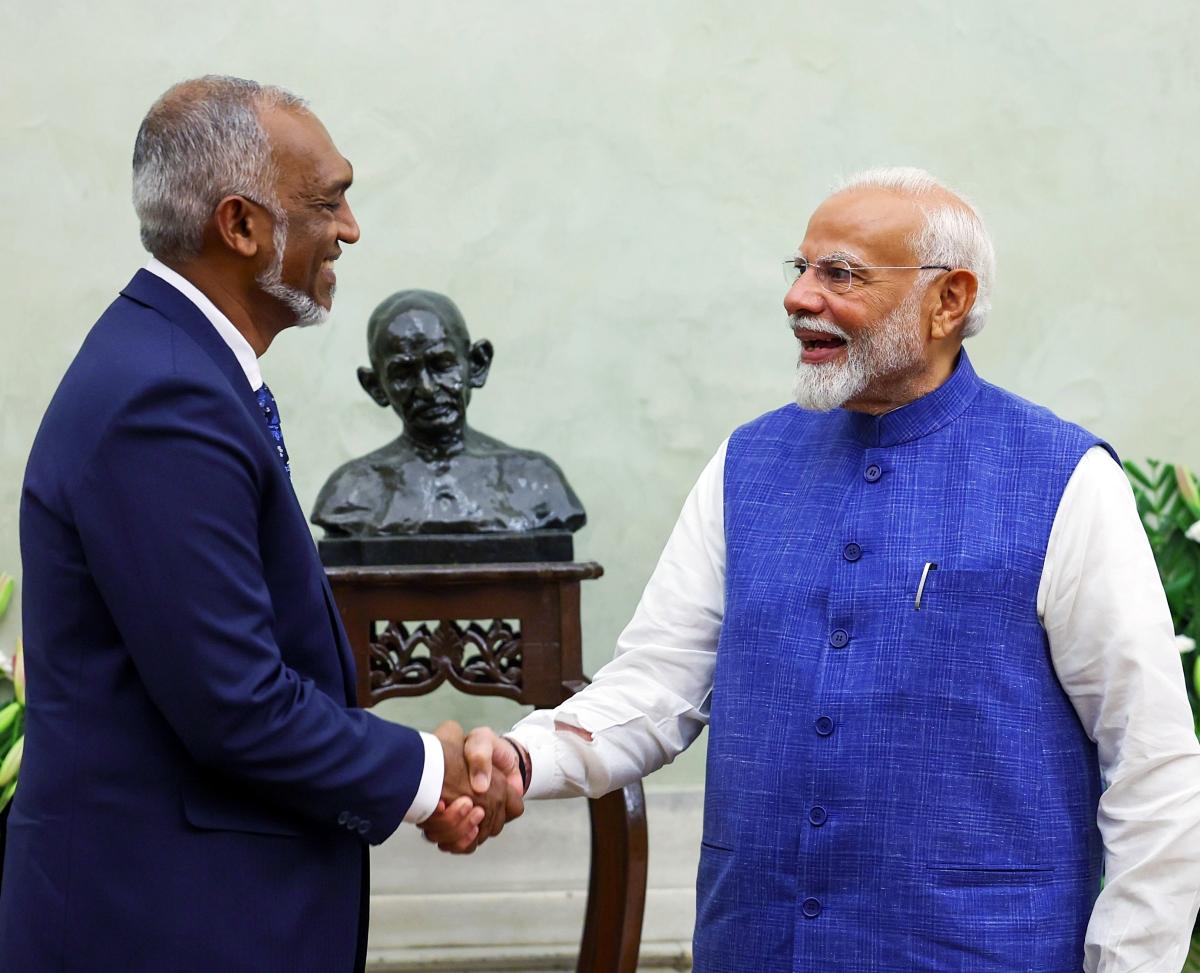
After meeting with Jaishankar, Muizzu posted thus on the social media: 'I thank the Government of India, especially Prime Minister Narendra Modi for always supporting the Maldives.'
Muizzu spoke at a ceremony to hand over India-funded water supply and sewerage facilities, under New Delhi's High-Impact Community Development Projects on 28 islands in Jaishankar's presence, and reaffirmed his administration's 'full commitment to strengthening the historic and closest relations'.
Days after Jaishankar's visit, Muizzu followed it up with a message for India's Independence Day, when he recalled how 'our enduring friendship, rooted in history, has evolved to foster prosperity and development in the Maldives and the region'.
This was possibly the first time that Muizzu was referring to bilateral relations with India to cover the 'region' as a whole.
In his social media post on Jaishankar's visit, Minister Zameer said how Maldives was 'committed to strengthening relations with India'.
His earlier visit to Delhi is believed to have re-set the Muizzu government's neighbourhood priorities towards old norms that it was seen as rocking, In talks with the visitor, Zameer proposed to start talks on a Free Trade Agreement with India.
Incidentally, the China FTA that has been in cold storage under the Solih regime is set to be implemented in September.
Jaishankar shared similar sentiments, reiterating that for India, 'Maldives relations is a priority' and his visit will lay the foundation for 'bigger and better things'.
He inspected the progress of work at the India-funded $500 million Thilamale sea bridge, connecting three islands, including the capital Male.
The minister made a quick trip to southern Addu, where he said that the $220 million Indian investments stood proof for New Delhi's commitment to regional development in Maldives.
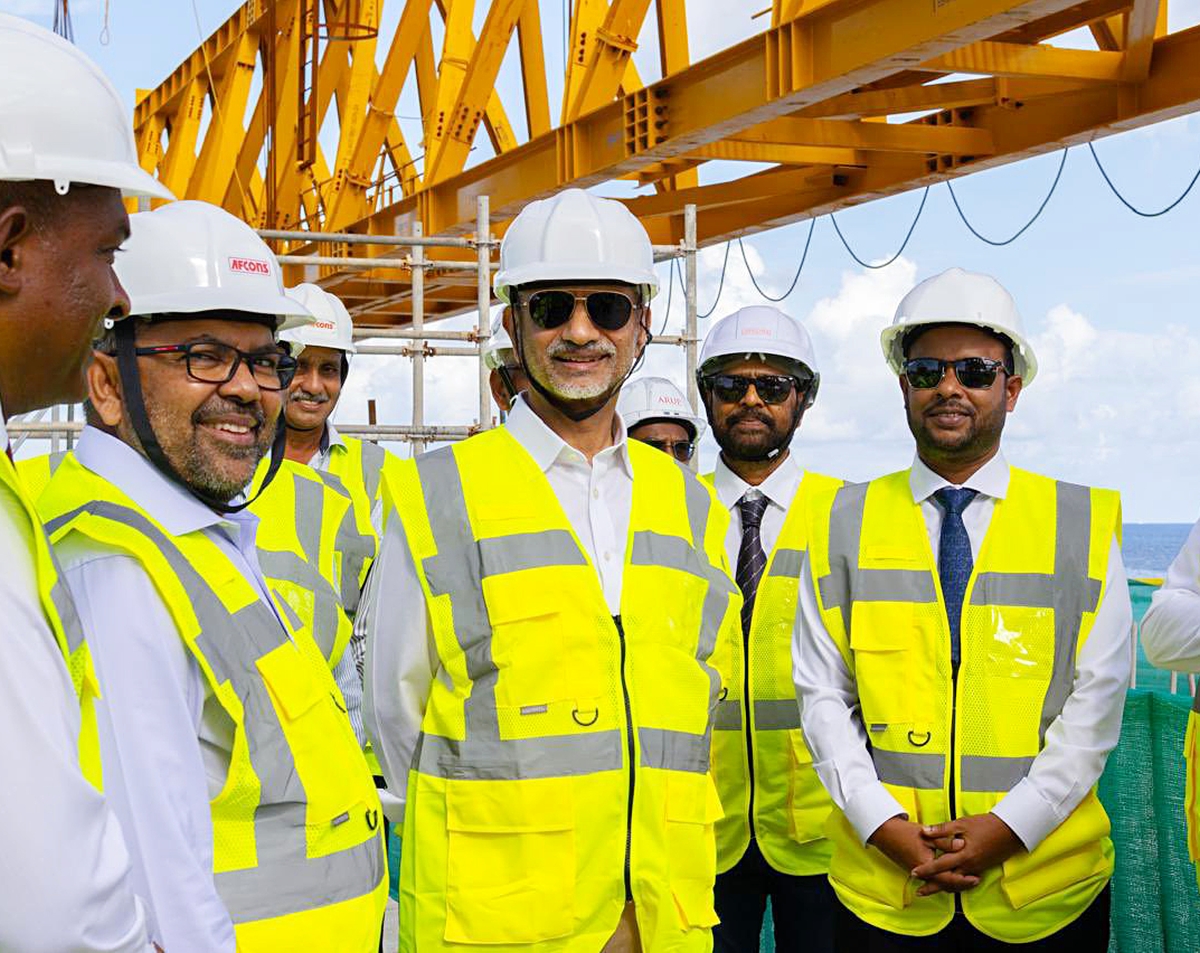
Muizzu had injected strains into bilateral relations by backing his estranged political guru, jailed former president Abdulla Yameen's 'India Out/India Military Out' campaign, first as Male city mayor and later as presidential candidate.
On assuming office, he continued with his anti-India diatribe, and sought and obtained the replacement of Indian military pilots and technicians, operating three aerial platforms, gifted by New Delhi, with civilian personnel.
It was good in a way as at first hand the president could tell the nation that there were only 76 Indian military personnel operating the two helicopters and one fixed-wing Dornier aircraft, as against 2,000 and 3,000 that anti-India social media activists had claimed through the presidential poll campaign.
With the recent monsoon rains, the grounded Indian platforms and their civilian pilots were pressed back into service for medical evacuations, as before Muizzu's time.
After visiting Turkey and China as president, Muizzu had declared his decision to stop 'single-source dependence' (on India) for essentials supplies, by procuring year-long requirements from distant Turkey.
Months later, India remains the main-] supplier. However, Muizzu had his way by replacing India-gifted Dornier with Turkish drones for maritime surveillance of the vast Maldivian Ocean territory.
As if to yield to hardliners in his electoral camp, he also decided not to renew the three-year contract for joint oceanographic studies with India.
Yet, he allowed a Chinese 'research vessel', better known as a 'spy ship', to berth at Male port, twice in a month, claiming that it was only for restocking and personnel-rotation.
From the Indian side, too, media over-kill from all sides and sections contributed to damaging bilateral ties more than already.
China was the justifiable bugbear, but the unthinking and at times motivated 'Boycott Maldives' social media call after three junior Maldivian ministers defamed India and Prime Minister Modi through their social media posts, upset pro-India elements in that country even more.
The avoidable stresses and strains in bilateral ties helped in one way. It showed for the entire region and the rest of the world, how a matured nation like India handled diplomatic ties, especially with a smaller and suspicious neighbour, with practised dignity and patience, unruffled by provocations in word, deed and action.
It would have also shown the new Maldivian rulers how a caring and sharing friend and neighbour India has been, against extra-territorial powers with their geo-strategic agenda that conflicted with the archipelago-nation's priorities and requirements.
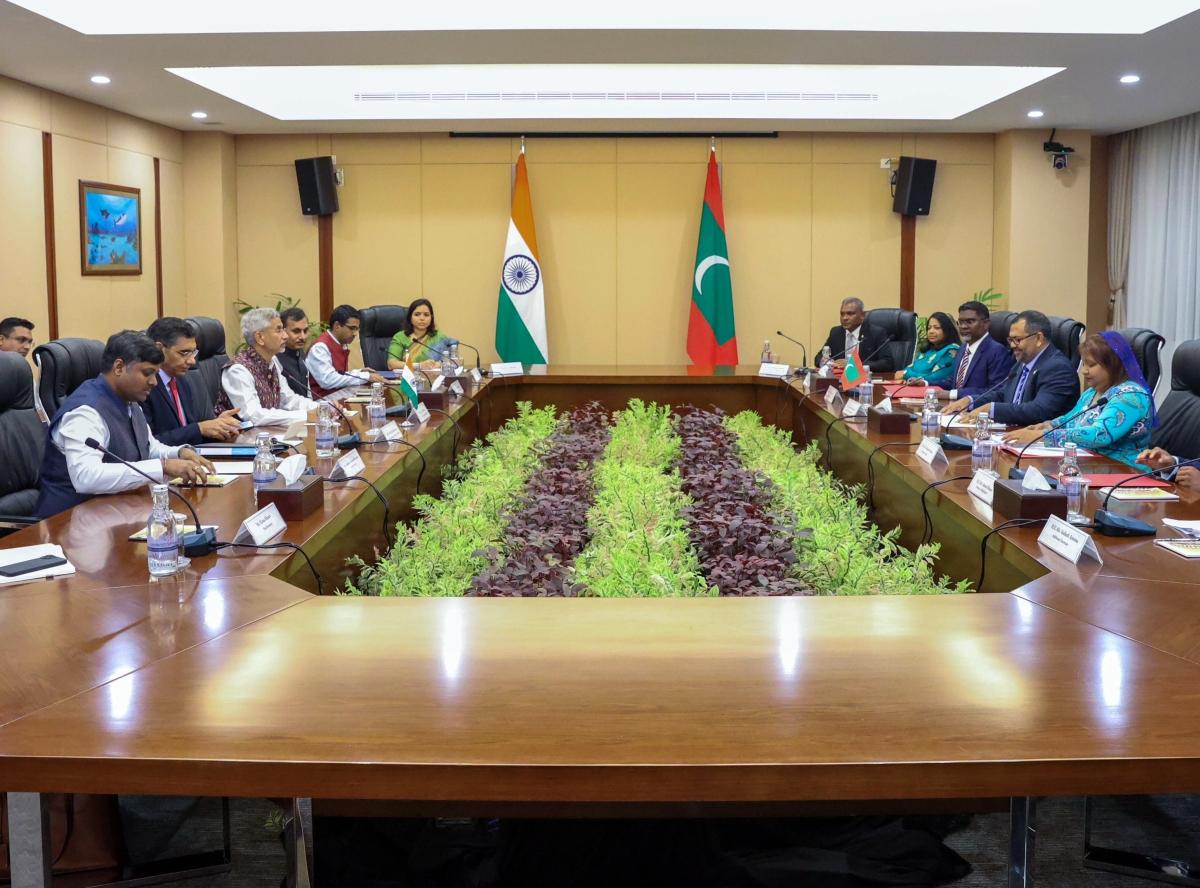
At least some of Muizzu's early adventurism/mis-adventurism on the India front owes to his overnight prop-up as a presidential candidate, with early compulsions to retain the inherited/stolen constituency until after the parliamentary polls that was months away.
A 'super-majority' for Muizzu's People's National Congress in the April elections to the 93-member parliament has since showed who the boss was now.
The fact that nothing is being heard of the embarrassing demand by a hardline journalist-MP's for a parliamentary probe into India-funded projects when Muizzu was in Delhi could be a pointer.
Having gone through the learning curve and literally so, Muizzu has to build a new 'Maldivian constituency' that included the large number of middle-of-the-road 'swing voters', who have been the real deciders in any election, post-democratisation, even while retaining the conservative traditional constituency that he 'stole' from Yameen, by re-working national priorities for an aspiring generation.
Yet, these conservatives, religious and otherwise, too should not to be confused with those professing a toxic combo of peripheral 'Islamic nationalism' and 'anti-India' diatribe, coupled with 'self-reliant' developmental initiatives -- yet, with non-Indian external assistance.
It might have served the first president Ibrahim Nasir (1968 to 1978), who was prime minister for the previous ten years.
But when the Maldives began coming out of isolation centuries after the new-found tourism economy gave a new meaning and direction, Gayoom and Yameen could not sustain their complex politics in a globalised world.
Instead, they created entrenched money-bags, who are also Muizzu's windmills to fight against just now.
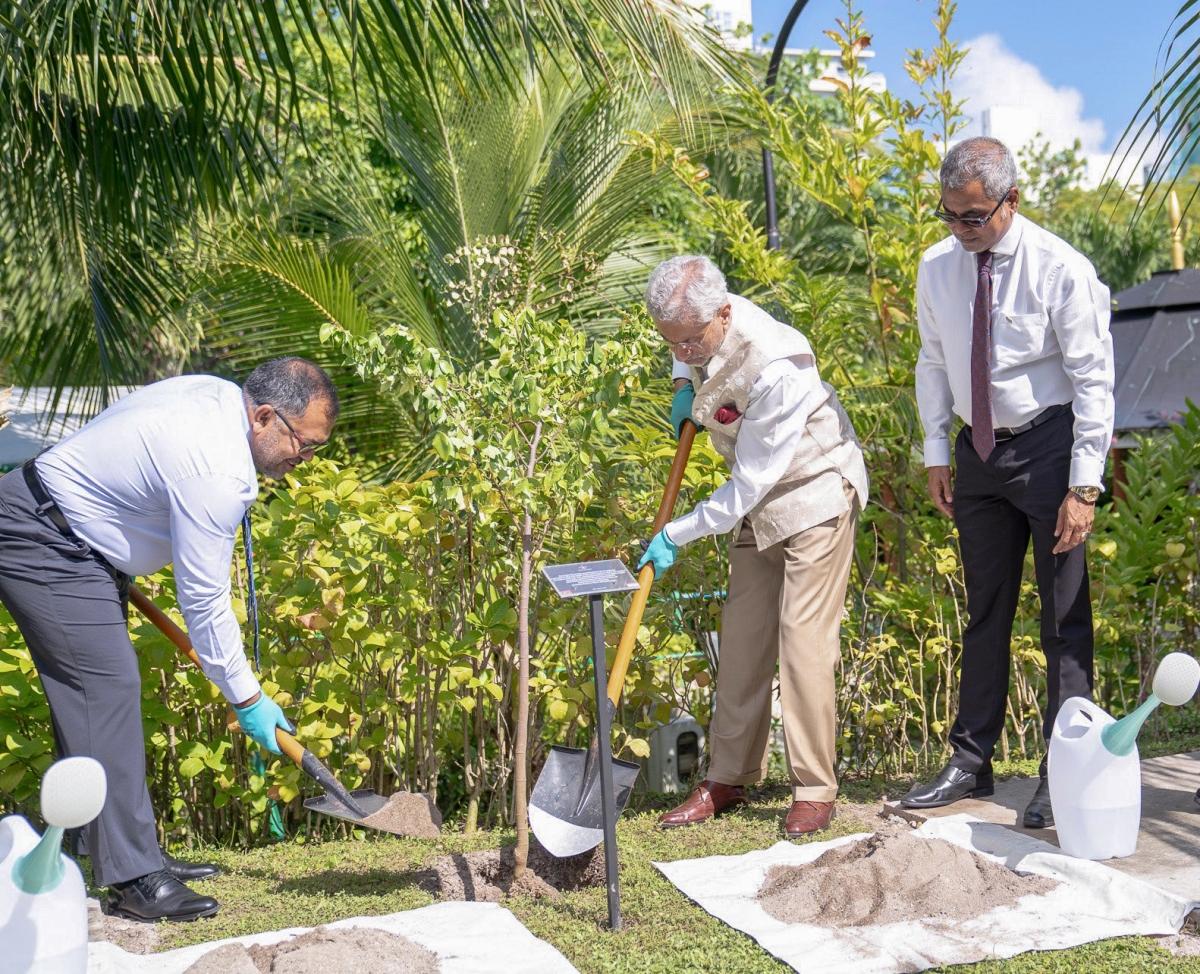
The taste of the pudding is in eating. As coincidence would have it, the Maldives under Muizzu participated in the recent meeting of the Colombo Security Conclave, initiated long ago by India, with non-traditional security concerns of immediate Indian Ocean neighbours in focus.
In fact, it was an evolution from the original India-Maldives, Dosti exercises of the two Coast Guards, initiated after the 1988 coup bid in the latter, and into which Sri Lanka signed in at the end of the decades-old ethnic war in that country.
Today, the Colombo Security Conclave has its apex in the national security advisors of member-nations, which includes Mauritius, too, with Bangladesh and Seychelles as observers.
The Maldives had stayed away from the previous Colombo Security Conclave, hosted by Mauritius, not long after Muizzu became president -- but later blamed it on the predecessor regime for not keeping it updated.
This time round, Maldives was present, the country's NSA signed the joint statements -- though Bangladesh, after the recent regime-change induced by popular protest, did not.
N Sathiya Moorthy, veteran journalist and author, is a Chennai-based policy analyst and political commentator.
Feature Presentation: Rajesh Alva/Rediff.com







